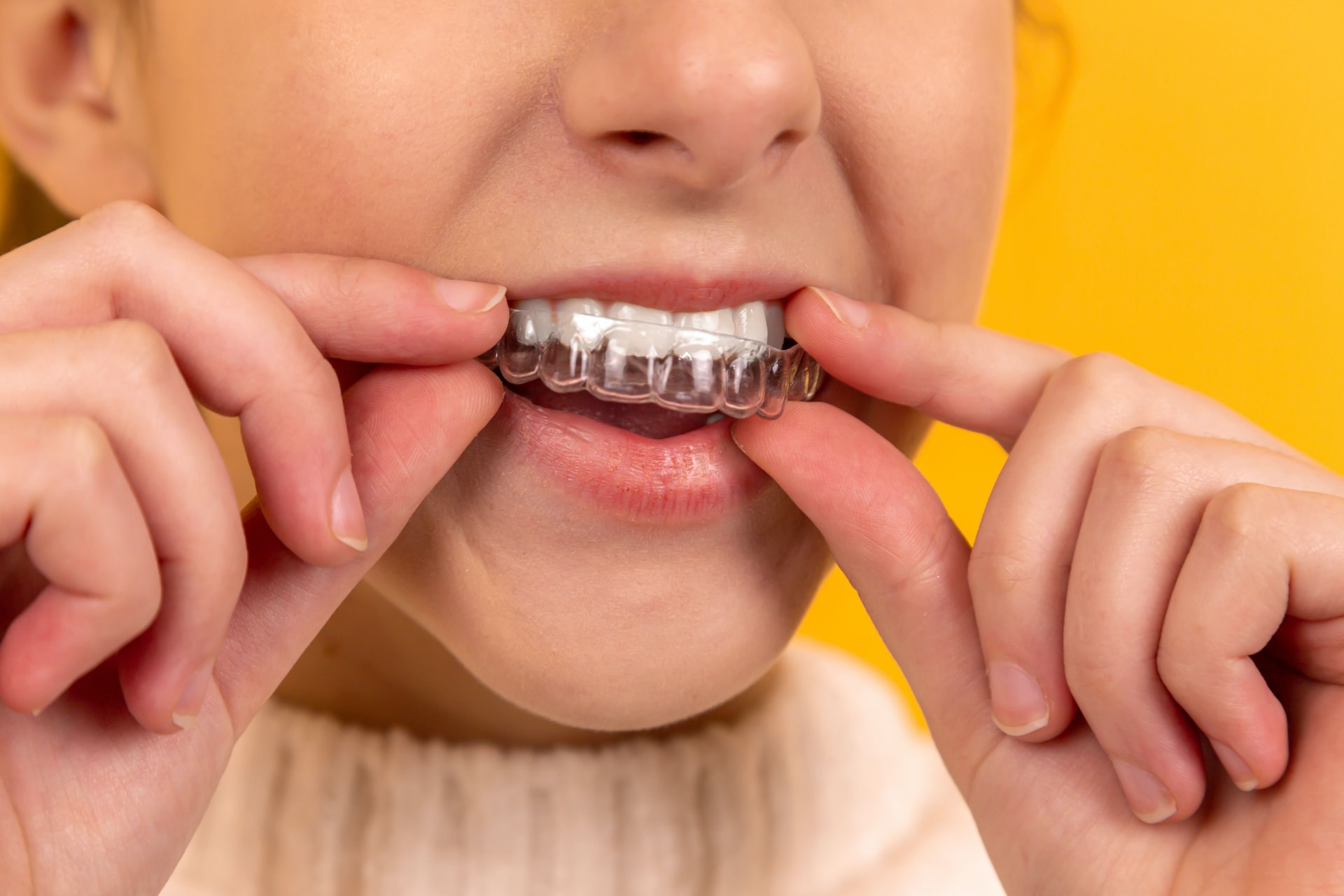Invisalign vs Braces | Which Is Better to Straighten Teeth?
When you decide you want to straighten your teeth, how do you know if Invisalign clear retainers or traditional braces will be better? Let’s take a closer look at both options, how they work and the pros and cons of both straightening teeth methods.
How Does the Invisalign Teeth Straightening System Work?
Invisalign teeth straightening system uses a series of clear medical-grade plastic and custom made aligners that gradually straighten your teeth. The leading brand most dentists use is Invisalign’s aligner 3D printing technology, as it gives predictable and reliable results.
Invisalign was the first company to make clear aligners from a patented material, which is thinner and more durable than all other brands. They are used to apply pressure that enables the correct progression of each tooth movement.
To start your Invisalign treatment plan, you will need to visit an Invisalign registered dentist, who will take a 3D digital scan of your teeth to ensure your aligners are moulded correctly. Your progress is monitored and — depending on the severity of your case — you may also require additional attachments that connect to your clear aligners. This innovation means Invisalign is suitable for more complex cases.
You have to wear the aligners for 20 to 22 hours a day, taking them out just for eating and drinking. A series of numbered aligners are made, which you change every one to two weeks until your teeth are straight. You will typically attend a checkup with your orthodontist London every six to eight weeks. Treatment with Invisalign normally takes between 12 and 18 months.
How Do Metal Braces Work?
Metal braces are permanently fixed to the teeth and use brackets with a wire thread which exerts pressure to move teeth into the correct position. The wires are adjusted by an orthodontist every four to eight weeks.
There are various types of fixed braces; they can be made from metal, ceramic or clear plastic. Depending on the movement required, it is often possible to have braces fixed to the back of the teeth (lingual) so they are harder to see. Another option is ceramic brackets connected with a tooth-coloured wire, making them more difficult to notice, especially from a distance.
Treatment with all types of fixed braces usually takes between 18 and 24 months. Treatment of more complex cases can take up to three years.
Pros and Cons | Invisalign vs Braces
Invisalign
Pros
- Aligners are removed before you eat, so you can eat and drink anything you want.
- Easier to keep teeth clean; simply remove and brush and floss as usual.
- Comfortable and don’t irritate gums or tongue.
Cons
- They need to be worn 20 to 22 hours a day and if you don’t wear them for long enough every day, they might not work correctly.
- They must be removed to eat and drink anything apart from water.
- Aligners are not suitable for approximately 10% of complex cases.
Braces
Pros
- They cannot be removed, so you don’t have to worry about wearing them for long enough every day.
- You can drink and eat without needing to remove them.
- They can treat very complex cases.
Cons
- They restrict what you can eat as food can get stuck in the brackets.
- They often cause mouth irritation and behind-teeth braces may cause tongue sores.
- They make it more difficult to clean teeth and maintain good oral hygiene.
Summary
Choosing a cosmetic dentist that can also provide a range of other procedures such as teeth whitening and composite bonding to repair chipped teeth means you can enjoy a complete smile makeover following treatment with braces or Invisalign. When selecting a cosmetic dentist, patient reviews are a good way to get a feel for the type of dental treatment most often provided. Reviews can be found on Google and other platforms such as TrustPilot. Whatever system you choose to straighten your teeth, the most important choice you will make will always be the dentist who provides your treatment.

